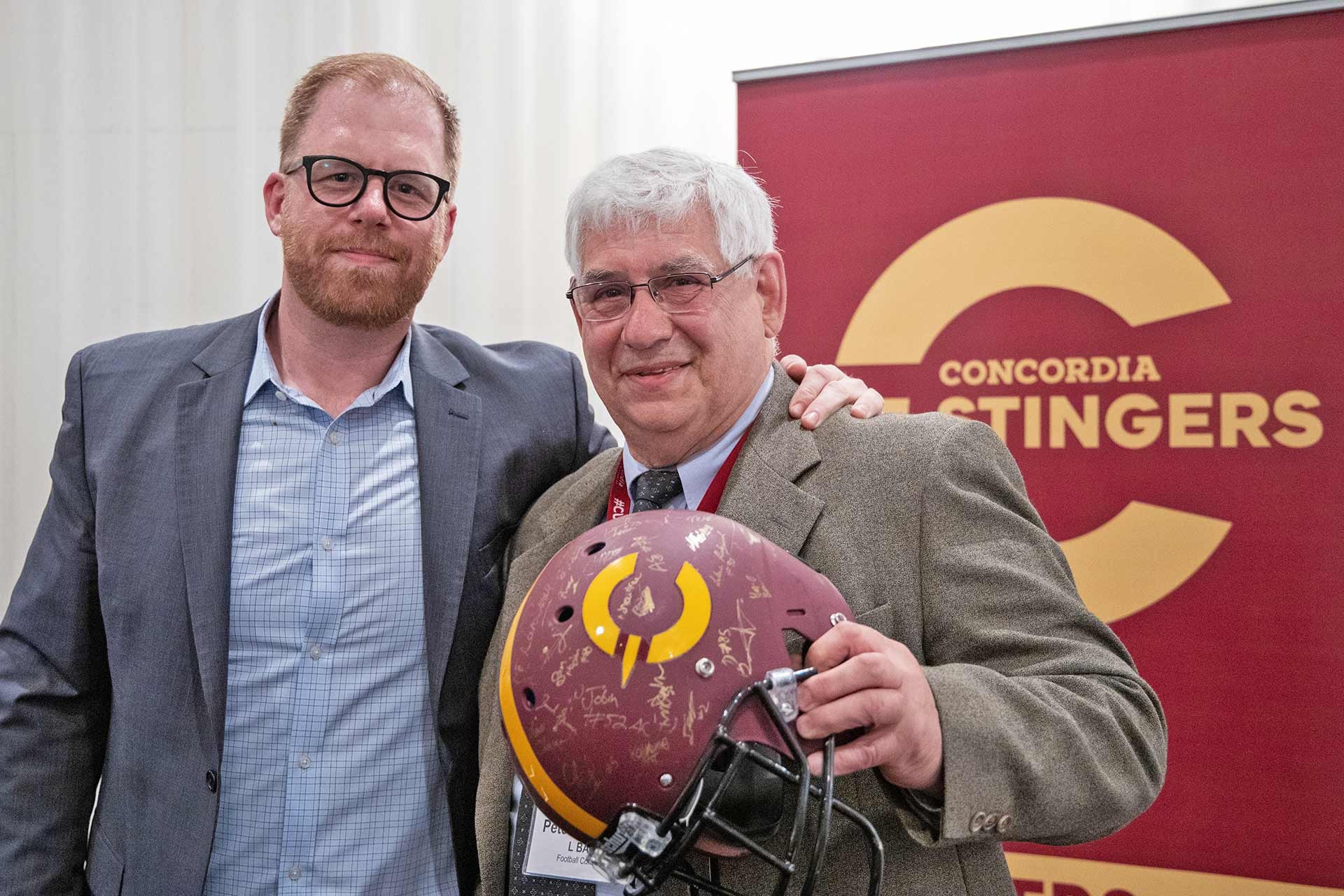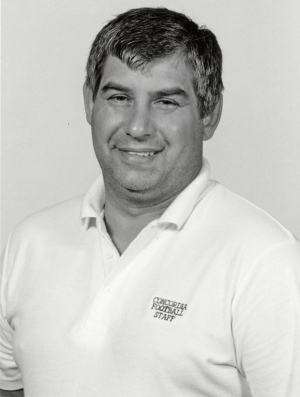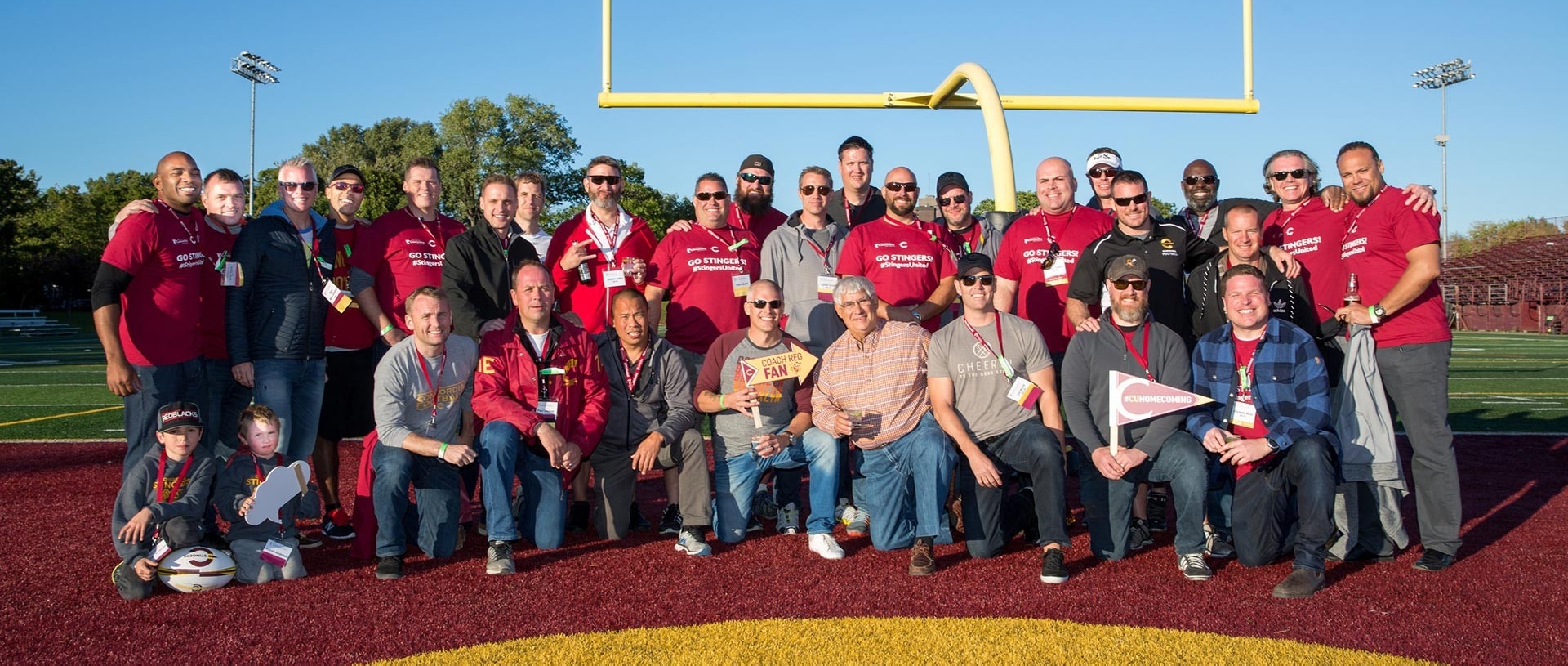Stingers coach Brad Collinson, BA 05, who has known “Coach Reg” since his early teens, was not surprised Regimbald physically demonstrated to his players the need for “good hands” on that particular special teams play.
“I’ve seen quite a few things in my time with him,” Collinson said. “He’s an older gentleman now but he still has some youth in him. The kids don’t expect it out of him and then he’ll go out there and he’ll do something off the cuff, just to calm everybody down a little bit. As much as it has to be serious, just realize that we’re playing a game, let’s have some fun here, too.”
Regimbald’s unbroken loyalty to Concordia football predates the Loyola-Sir George Williams merger that formed the university, beginning as a member of legendary Warriors coach George Dixon’s staff in 1968.
Ralph Loader, BComm 71, MBA 75, faced Regimbald and the Warriors when he played for the Sir George Williams Georgians from 1969-70. A few years prior he had to tell a junior team’s head coach that he was not ready to move up to that level.
“His response was highly negative,” Loader said. “He happened to have a helmet in his hand and he fired it across the room. It went clattering all over the place so everybody was aware what was going on, and he was screaming at me. Then I sat down to get out of my equipment and Pete was sitting next to me. And he put his arm around me. ‘Look, Ralph,’ he said, ‘you’ve got to make these decisions on your own and I don’t want you to have any concern about the reaction of other people. You’ve made your decision and we respect it.’
“And I hope that story explains my most lasting impression of Pete. I mean, it’s never left me since then. This gentleman is one of the most gentle and caring people that I’ve ever met. And I think that’s the source of his tremendous ability to motivate young people.”
 'He’s just a good person, somebody you could always go to': current Stingers coach Brad Collinson (left) has known “Coach Reg” since his early teens. Here they are together at the May 4 Stingers football banquet.
'He’s just a good person, somebody you could always go to': current Stingers coach Brad Collinson (left) has known “Coach Reg” since his early teens. Here they are together at the May 4 Stingers football banquet.
 “Coach Reg” in the 1980s.
“Coach Reg” in the 1980s.
 Regimbald (centre) with the Warriors, Georgians and Stingers who came out to honour him at Homecoming 2018.
Regimbald (centre) with the Warriors, Georgians and Stingers who came out to honour him at Homecoming 2018.


